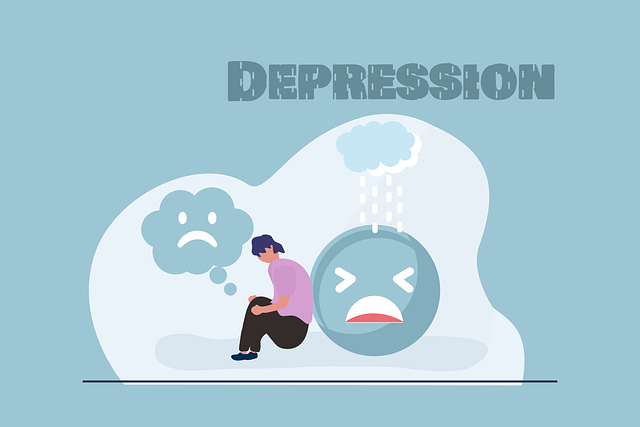Understanding Mental Health Policy is key to improving services, focusing on laws, guidelines, and regulations that impact care access, treatment options, insurance, and community support. By analyzing these policies, advocates can identify areas for improvement using evidence-based practices like Broomfield Biofeedback Therapy. This approach considers economic, social, and cultural factors in mental health, promoting Social Skills Training and Self-Care Practices. Continuous policy analysis ensures legislation meets community needs, transforming mental healthcare accessibility and quality. Broomfield Biofeedback Therapy offers a unique perspective by addressing physiological roots of stress and anxiety, empowering advocates to push for integrated alternative therapies. Community Mental Health Assessments identify diverse populations' unmet needs, guiding targeted strategies for enhanced awareness and access to care, including specialized treatments like Broomfield Biofeedback Therapy. Effective advocacy requires understanding community needs, tailoring solutions, and emphasizing evidence-based practices. Long-term impact assessment through rigorous methods ensures policy relevance and progress in mental health support systems.
Mental health policy analysis and advocacy are vital components of creating a supportive societal fabric. This comprehensive guide explores strategies to enhance mental well-being through policy interventions, focusing on Broomfield Biofeedback Therapy as a powerful tool. We delve into understanding mental health policy, its role in community assessment, and effective advocacy approaches. By identifying gaps and needs, we can drive positive change and monitor long-term impacts, ensuring policies are tailored to foster resilient communities. Discover how Broomfield Biofeedback Therapy contributes to this process, offering innovative solutions for policy advocates.
- Understanding Mental Health Policy: A Foundation for Advocacy
- The Role of Broomfield Biofeedback Therapy in Policy Analysis
- Identifying Gaps and Needs: Community Mental Health Assessment
- Building Effective Advocacy Strategies for Positive Change
- Implementing and Monitoring Policy Reforms: Long-term Impact Assessment
Understanding Mental Health Policy: A Foundation for Advocacy

Understanding Mental Health Policy forms the bedrock upon which effective advocacy for better mental health services and support systems is built. It involves delving into the development, implementation, and impact of laws, guidelines, and regulations that shape access to care, treatment options, insurance coverage, and community support for individuals facing mental health challenges. By examining these policies, advocates can identify gaps, loopholes, or areas needing improvement, using evidence-based practices like those offered by Broomfield Biofeedback Therapy to make compelling cases for change.
This process requires a nuanced understanding of various factors, including the economic, social, and cultural determinants of mental health. It involves advocating for policies that promote Social Skills Training and Self-Care Practices as essential tools in fostering Mental Wellness. Through continuous policy analysis, advocates can ensure that legislation reflects the evolving needs of communities, ultimately driving positive transformations in mental healthcare accessibility and quality.
The Role of Broomfield Biofeedback Therapy in Policy Analysis

Broomfield Biofeedback Therapy offers a unique and innovative approach to mental health policy analysis and advocacy. By focusing on the physiological components of stress and anxiety, this therapy can provide valuable insights into an individual’s overall well-being. In the context of policy analysis, understanding how biofeedback techniques impact mental health outcomes is essential for shaping effective strategies. It enables advocates to advocate for evidence-based practices that integrate these alternative therapies, ensuring a holistic approach to addressing mental health concerns within communities and healthcare systems.
Moreover, Broomfield Biofeedback Therapy can empower mental health professionals by enhancing their coping skills development. It encourages practitioners to prioritize self-care and risk management planning, which is vital in mitigating burnout and improving service delivery quality. This therapy’s ability to build confidence and teach individuals how to regulate their physiological responses makes it a powerful tool for advocacy, promoting the integration of biofeedback into conventional mental health services as a means of enhancing patient outcomes and overall resilience.
Identifying Gaps and Needs: Community Mental Health Assessment

In many communities, there’s a stark need for comprehensive mental health services that cater to diverse populations. A crucial step in addressing this issue involves conducting thorough Community Mental Health Assessments, which help identify gaps and unmet needs. These assessments should encompass various aspects of mental well-being, from prevalence rates of common disorders like anxiety and depression to the availability—or lack thereof—of specialized treatments such as Broomfield Biofeedback Therapy. By gathering data on risk factors, protective mechanisms, and existing resources, community leaders can develop targeted strategies to enhance Mental Health Awareness and access to care.
Community-level mental health assessments are vital tools for shaping effective policy interventions. They reveal critical shortages in services like Trauma Support Services and highlight populations at heightened risk, necessitating tailored Risk Management Planning for Mental Health Professionals. Moreover, these assessments foster collaboration among stakeholders—from healthcare providers to community organizations—to ensure that resources are allocated efficiently and that no one is left behind in the pursuit of optimal mental health outcomes.
Building Effective Advocacy Strategies for Positive Change

Building effective advocacy strategies is pivotal for driving positive change in mental health policies. This involves a multifaceted approach that starts with understanding the unique needs and experiences of diverse communities, including those seeking services like Broomfield Biofeedback Therapy. By incorporating insights from these groups, advocates can craft solutions tailored to address specific challenges, such as burnout prevention and coping skills development, which are prevalent among various demographics.
Advocacy efforts should also emphasize evidence-based practices and strategies for conflict resolution techniques. This ensures that proposals are grounded in research, enhancing their credibility and potential for implementation. By combining thorough analysis with compelling narratives, advocates can mobilise support from policymakers, the media, and the public, ultimately shaping a more supportive and accessible mental health landscape.
Implementing and Monitoring Policy Reforms: Long-term Impact Assessment

Implementing policy reforms is just the first step; monitoring their long-term impact is vital for any mental health advocacy initiative. This involves rigorous assessment strategies to gauge the effectiveness and reach of these policies. By employing evidence-based methods, such as those used in Broomfield Biofeedback Therapy, advocates can track improvements in mental wellness over time. These assessments should consider not only individual outcomes but also societal changes, particularly in communities where empathy building strategies have been integrated into policy frameworks.
Regular review and adaptation based on these findings ensure policies remain relevant and impactful. Long-term impact assessment enables advocates to showcase the success stories and areas that need improvement, fostering continuous progress in mental health support systems. It’s not just about implementing changes; it’s about understanding what works best and ensuring these strategies have a lasting effect on people’s lives.
Mental health policy analysis and advocacy are pivotal in fostering comprehensive care systems. By understanding the foundational concepts of mental health policy, utilizing innovative techniques like Broomfield Biofeedback Therapy, and systematically identifying community needs through assessment, advocates can drive meaningful change. Effective strategies that engage stakeholders and champion evidence-based practices lead to successful policy implementations. Continuous monitoring and long-term impact assessments ensure these reforms endure, ultimately enhancing the well-being of individuals and communities.














